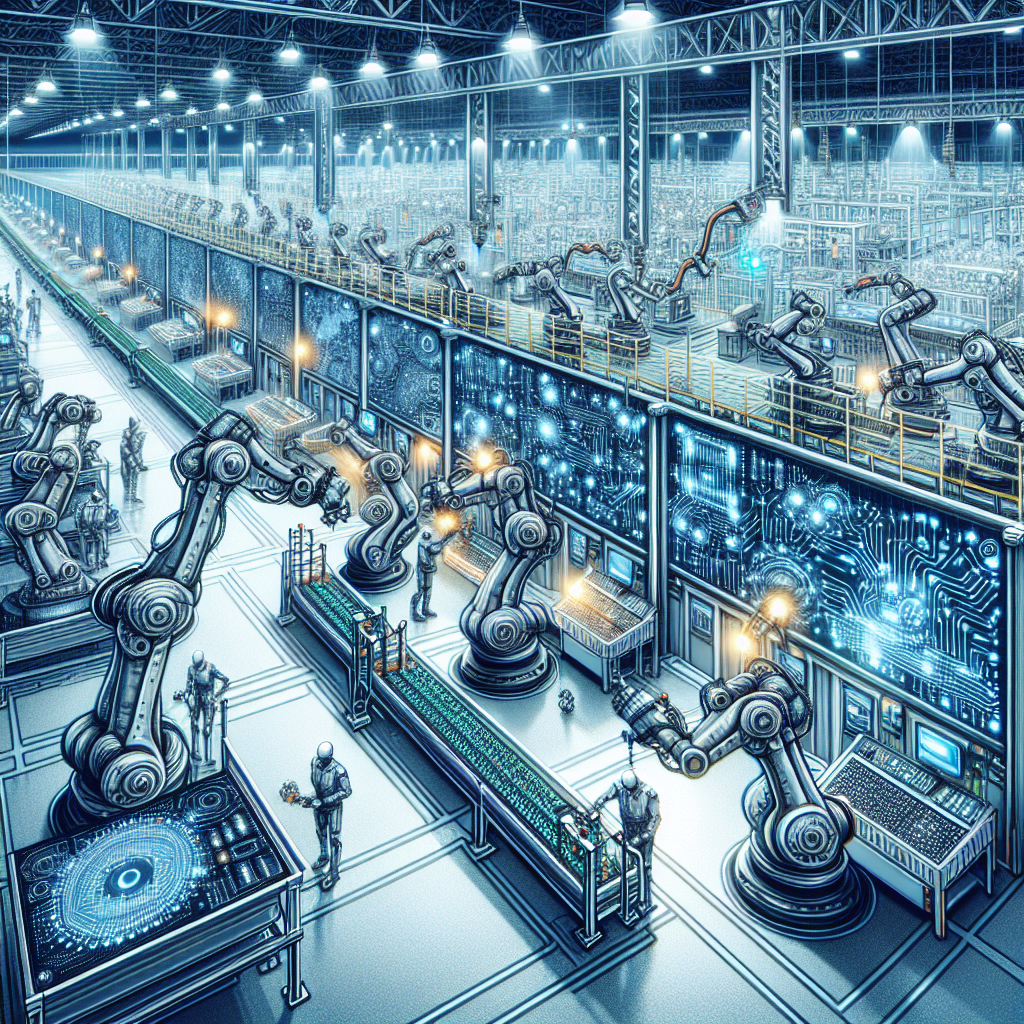The Impact of AI on Just-in-Time Manufacturing
Just-in-time (JIT) manufacturing is a production strategy that aims to improve efficiency by reducing inventory levels and production lead times. By producing only what is needed, when it is needed, JIT manufacturing helps companies minimize waste, improve quality, and increase flexibility. However, the implementation of JIT manufacturing comes with its own set of challenges, such as the need for accurate demand forecasting, efficient supply chain management, and real-time production monitoring. This is where artificial intelligence (AI) comes into play.
AI has the potential to revolutionize JIT manufacturing by providing advanced analytics, predictive modeling, and automation capabilities that can help companies overcome the limitations of traditional manufacturing processes. In this article, we will explore the impact of AI on JIT manufacturing and how it can help companies achieve their production goals more effectively.
1. Demand Forecasting
One of the key components of JIT manufacturing is accurate demand forecasting. By predicting customer demand, companies can optimize their production schedules, reduce inventory levels, and minimize the risk of stockouts. AI-powered forecasting tools use advanced algorithms to analyze historical data, market trends, and external factors to predict future demand more accurately than traditional forecasting methods. This allows companies to adjust their production plans in real time, respond to changes in demand quickly, and optimize their inventory levels more effectively.
2. Supply Chain Management
Another challenge of JIT manufacturing is managing a complex and dynamic supply chain. AI can help companies streamline their supply chain operations by optimizing supplier relationships, identifying bottlenecks, and reducing lead times. AI-powered supply chain management systems can analyze vast amounts of data from multiple sources, such as suppliers, logistics providers, and production facilities, to optimize production schedules, automate reorder processes, and improve inventory management. This can help companies reduce costs, improve delivery times, and enhance overall supply chain efficiency.
3. Production Monitoring
Real-time production monitoring is essential for JIT manufacturing to ensure that production processes are running smoothly, identify potential issues early, and make necessary adjustments to meet production targets. AI-powered production monitoring systems can collect data from sensors, machines, and production lines, analyze it in real time, and provide insights to improve production efficiency and quality. By using AI algorithms to detect patterns, anomalies, and deviations in production data, companies can optimize their production processes, reduce downtime, and improve overall productivity.
4. Quality Control
Maintaining high-quality standards is crucial for JIT manufacturing to ensure that products meet customer expectations and comply with regulatory requirements. AI can help companies improve their quality control processes by implementing advanced inspection technologies, such as computer vision, machine learning, and robotics, to detect defects, errors, and anomalies in real time. By automating quality control processes and integrating AI-powered inspection systems into production lines, companies can reduce the risk of defects, improve product quality, and enhance customer satisfaction.
5. Predictive Maintenance
Equipment downtime can disrupt production schedules and increase costs for companies implementing JIT manufacturing. AI-powered predictive maintenance systems can help companies prevent equipment failures, reduce maintenance costs, and improve overall equipment efficiency. By analyzing historical maintenance data, sensor readings, and machine performance metrics, AI algorithms can predict when equipment is likely to fail, schedule maintenance activities proactively, and optimize maintenance schedules to minimize downtime. This can help companies improve equipment reliability, reduce maintenance costs, and increase overall production uptime.
FAQs
Q: How can AI improve demand forecasting in JIT manufacturing?
A: AI-powered forecasting tools use advanced algorithms to analyze historical data, market trends, and external factors to predict future demand more accurately than traditional forecasting methods. This allows companies to adjust their production plans in real time, respond to changes in demand quickly, and optimize their inventory levels more effectively.
Q: How can AI help streamline supply chain management in JIT manufacturing?
A: AI-powered supply chain management systems can analyze vast amounts of data from multiple sources, such as suppliers, logistics providers, and production facilities, to optimize production schedules, automate reorder processes, and improve inventory management. This can help companies reduce costs, improve delivery times, and enhance overall supply chain efficiency.
Q: What role does AI play in real-time production monitoring in JIT manufacturing?
A: AI-powered production monitoring systems can collect data from sensors, machines, and production lines, analyze it in real time, and provide insights to improve production efficiency and quality. By using AI algorithms to detect patterns, anomalies, and deviations in production data, companies can optimize their production processes, reduce downtime, and improve overall productivity.
In conclusion, AI has the potential to revolutionize JIT manufacturing by providing advanced analytics, predictive modeling, and automation capabilities that can help companies improve demand forecasting, streamline supply chain management, monitor production processes in real time, enhance quality control, and implement predictive maintenance strategies. By leveraging AI technologies, companies can optimize their production processes, reduce costs, improve efficiency, and achieve their production goals more effectively in the fast-paced and competitive manufacturing industry.

